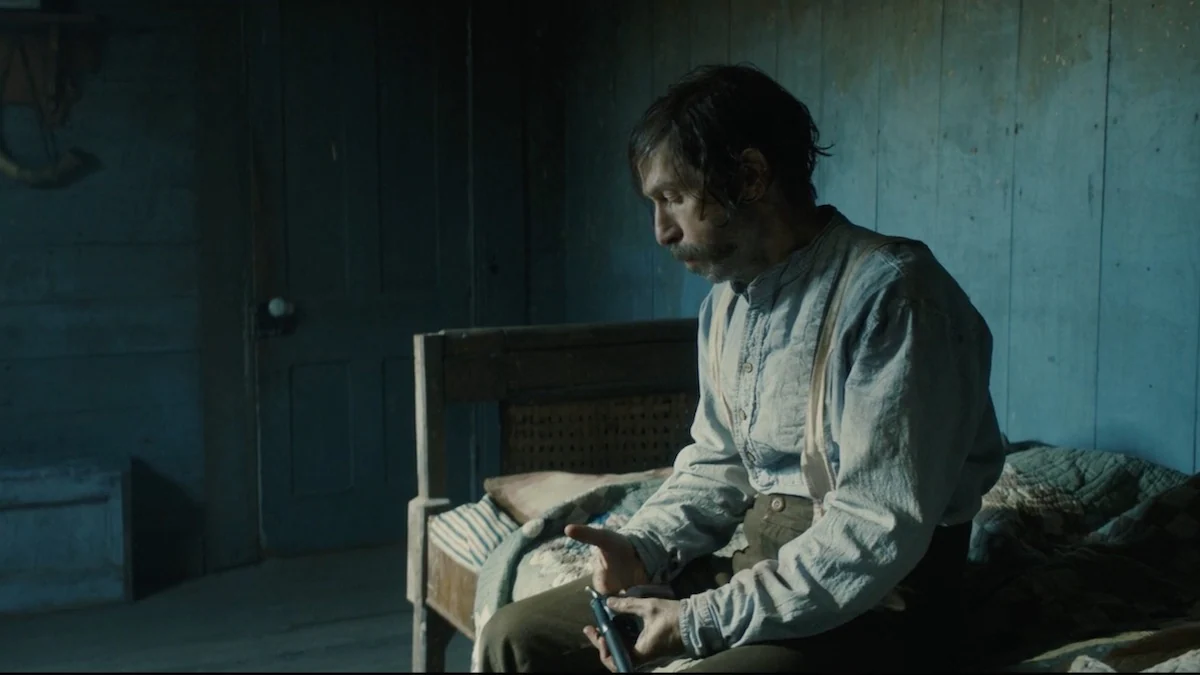This review of “Old Henry” was first posted on September 7, 2021 after the film’s premiere at the Venice Film Festival.
The Western is a film genre that has exerted an irresistible pull over the decades to filmmakers interested in action and adventure. But it’s also uniquely suited to deliver an elegy or a lament for days gone by, which is something Westerns have done indelibly from the final image of John Ford’s “The Searchers” to more recent films like Clint Eastwood’s monumental “Unforgiven” and Andrew Dominik’s luminous “The Assassination of Jesse James by the Coward Robert Ford.” There’s a reason why when Peter Bogdanovich wanted to capture the end of an era in “The Last Picture Show,” he used the final cattle drive in “Red River” — decades after their prime, Westerns can still have that impact.
Evoking days gone by, lone heroes and lives that could be snuffed out at any minute, Westerns by now carry an air of sadness to go along with their inevitable rip-roaring gunplay. Director Potsy Ponciroli knows that and uses it to marvelous effect in “Old Henry,” an elegiac indie Western that premiered at the Venice Film Festival on Tuesday.
The film plays like an indie variation on “Unforgiven,” albeit with an utterly delicious third-act twist. It is a dark, sorrowful and powerful meditation on aging, guilt, buried secrets and redemption — and like Eastwood’s masterpiece, it makes you root for violence while knowing full well that you shouldn’t. And it makes full use of the rich mythology of the Old West, riffing on familiar legends with a sly awareness of how much they can still mean to us.
It stars the magnificent Tim Blake Nelson, who played the jokey but deadly singing cowboy who served as the title character in the Coen brothers’ wonderful anthology “The Ballad of Buster Scruggs” not long ago. He has the title role in “Old Henry,” too, but this time there’s no crooning or yodeling on horseback; Henry is tired and worn out, a farmer who lives with his teenage son in the Oklahoma Territory in 1906 and looks for nothing more than a backbreaking day’s work digging ditches and wrangling pigs on his desolate, remote ranch.
“It can be hard to tell who and what a man is if he’s got a mind to tell you otherwise,” says Nelson’s Henry in a voiceover early in the film, and it’s clear that Henry himself may not be telling the truth when he insists he’s nothing but a farmer. His teenage son, Wyatt (Gavin Lewis) is disgusted by a father who won’t let him fire a gun and is determined to live a quiet life – but potential adventure (and potential danger) arrives in the form of a riderless horse that leads Henry to a man who’s near death and a satchel bursting with money.
When a trio of lawmen (or are they?) show up in search of the wounded man, Henry sends them away and Wyatt is excited by hints of darkness in his father’s past. The film rarely ventures beyond the small farm; it’s a chamber western of sorts, austere and foreboding and often as not set to the mournful strains of string compositions from Jordan Lehning.
It’s not hard to figure out where this is going: There’s going to be a showdown, people will die and Henry will prove to be a lot more than just a farmer. But Ponciroli’s script takes its time with the revelations because Henry is in no hurry to share them with his son. “I’ve done things I wish I could take back,” he says softly, barely summoning up the energy to open his heavy-lidded eyes. “Things you have no business hearing.”
But in a performance that is a marvel of economy, Nelson speaks volumes through that grizzled, hangdog expression that rarely changes. Henry can barely shoulder the burden of who he once was, but he knows he’s capable of being that person again, and he knows he may have no other choice. The Western is a genre weighted down with dark history, and Henry is a man in the same position, haunted to a degree that Nelson makes transfixing.
There’s a twist toward the end that is both startling and completely satisfying, one that pushes “Old Henry” toward a climax that manages to be simultaneously rousing, sad and just right. When the guns come out, as you know they will, Nelson sells it even if the staging of the big battle isn’t always persuasive.
“Old Henry” is a small, intimate Western, and a quietly moving one even if it largely takes place indoors rather than in the wide-open spaces. At times you wish it could be more expansive, but the truth in this beautiful elegy is that you don’t really need more action than what you can find in Tim Blake Nelson’s eyes.


